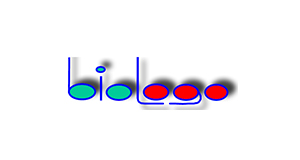HEA125, Epithelium-specific Glycoprotein, Egp34, EpCAM (CD326)
HEA125, Epithelium-specific Glycoprotein, Egp34, EpCAM (CD326), IgG1, Clone: HEA125
Clone: HEA125
Background: The antibody HEA 125 reacts intensely with all carcinoma derived from the intestinal tract, stomach, pancreas, liver, lung, breast, ovary, thyroid gland, kidney, bladder, prostate and metastases thereof. Stratified squamous epithelia usually stain less intensely then adenocarcinoma. The antibody is suitable for differentiation between carcinoma an non-carcinoma. Keratinizing areas of a tumour mass usually remain unstained as sarcoma, lymphoma, melanoma and neurogenic tumours do. Epithelial cells express a number of characteristic proteins and glycoproteins like cytokeratins, epithelial membrane antigen and epithelium-specific glycoprotein Egp34 (HEA125). The monoclonal antibody HEA125 which has been derived from immunisation of mice with a colon carcinoma cell line shows a broad reactivity pattern. It is labelling most human epithelial cells and epithelium derived tumours. It doesn't react with epidermal keratinocytes, parietal cells, hepatocytes, thymus cortical epithelium, myoepithelia, and non-epithelial tissues. 34 kDa Epithelium-specific membrane glycoprotein HEA 125.
Positive Control: Appendix
Immunogen: Living human colon carcinoma cell line HT-29
Purification Method: Antibody solution in stabilizing phosphate buffer pH 7.3. Contains 0.09 % sodium azide** and BSA. The volume is sufficient for at least 50 immunohistochemical tests (100 µl working solution / test). Use appropriate antibody diluent e.g. BIOLOGO Art. No. PU002, if further dilution is required.
References: 1. Moldenhauer G., Momburg F., Möller P., Schwartz, and Hämmerling G.J. (1987) Epithelium-specific surface glycoprotein of Mr 34,000 is a widely distributed human carcinoma marker. Br. J. Cancer 56; 714-721. 2. Momburg F., Moldenhauer G., Hämmerling G.J., and Möller F. (1987) Immunohistochemical study of the expression of a Mr 34,000 human epithelium-specific surface glycoprotein in normal and malignant tissues. Cancer Research 47; 2883-2891. 3. Simon B., Podolsky, D.K., Moldenhauer G., Isselbacher K.J., Gattoni-Celli, S., and Brand S.J. (1990) Epithelial glykoprotein is a member of a family of epithelial cell surface antigens homologous to nidogen, a matrix adhesion protein. Proc. Natl., Acad. Sci. USA 87; 2755 ff. 4. Kemmner W., Moldenhauer G., Schlag P., and Brossmer R. (1992) Separation of tumor cells from a suspension of dissociated human colorectal carcionoma tissue by means of monoclonal antibody-coated magnetic beads. J. Immunol. Methods 147; 197-200. 5. Winter , M. J. et al. (2003) The epithelial cell adhesion molecule (Ep - CAM) as a morphoregulatory molecule is a tool in surgical pathology. Am. J. Pathol. 163 : 2139 - 2148.
UniProt: P16422 (EPCAM_HUMAN)
Caution: *These antibodies are intended for in vitro research use only. They must not be used for clinical diagnostics and not for in vivo experiments in humans or animals. ** The preservative sodium azide is known to be poisonous and potentially hazardous to health. It should be handled only by trained staff. Despite of the product's low azide concentration it must be handled with care. Dispose according to regional rules!
Background: The antibody HEA 125 reacts intensely with all carcinoma derived from the intestinal tract, stomach, pancreas, liver, lung, breast, ovary, thyroid gland, kidney, bladder, prostate and metastases thereof. Stratified squamous epithelia usually stain less intensely then adenocarcinoma. The antibody is suitable for differentiation between carcinoma an non-carcinoma. Keratinizing areas of a tumour mass usually remain unstained as sarcoma, lymphoma, melanoma and neurogenic tumours do. Epithelial cells express a number of characteristic proteins and glycoproteins like cytokeratins, epithelial membrane antigen and epithelium-specific glycoprotein Egp34 (HEA125). The monoclonal antibody HEA125 which has been derived from immunisation of mice with a colon carcinoma cell line shows a broad reactivity pattern. It is labelling most human epithelial cells and epithelium derived tumours. It doesn't react with epidermal keratinocytes, parietal cells, hepatocytes, thymus cortical epithelium, myoepithelia, and non-epithelial tissues. 34 kDa Epithelium-specific membrane glycoprotein HEA 125.
Positive Control: Appendix
Immunogen: Living human colon carcinoma cell line HT-29
Purification Method: Antibody solution in stabilizing phosphate buffer pH 7.3. Contains 0.09 % sodium azide** and BSA. The volume is sufficient for at least 50 immunohistochemical tests (100 µl working solution / test). Use appropriate antibody diluent e.g. BIOLOGO Art. No. PU002, if further dilution is required.
References: 1. Moldenhauer G., Momburg F., Möller P., Schwartz, and Hämmerling G.J. (1987) Epithelium-specific surface glycoprotein of Mr 34,000 is a widely distributed human carcinoma marker. Br. J. Cancer 56; 714-721. 2. Momburg F., Moldenhauer G., Hämmerling G.J., and Möller F. (1987) Immunohistochemical study of the expression of a Mr 34,000 human epithelium-specific surface glycoprotein in normal and malignant tissues. Cancer Research 47; 2883-2891. 3. Simon B., Podolsky, D.K., Moldenhauer G., Isselbacher K.J., Gattoni-Celli, S., and Brand S.J. (1990) Epithelial glykoprotein is a member of a family of epithelial cell surface antigens homologous to nidogen, a matrix adhesion protein. Proc. Natl., Acad. Sci. USA 87; 2755 ff. 4. Kemmner W., Moldenhauer G., Schlag P., and Brossmer R. (1992) Separation of tumor cells from a suspension of dissociated human colorectal carcionoma tissue by means of monoclonal antibody-coated magnetic beads. J. Immunol. Methods 147; 197-200. 5. Winter , M. J. et al. (2003) The epithelial cell adhesion molecule (Ep - CAM) as a morphoregulatory molecule is a tool in surgical pathology. Am. J. Pathol. 163 : 2139 - 2148.
UniProt: P16422 (EPCAM_HUMAN)
Caution: *These antibodies are intended for in vitro research use only. They must not be used for clinical diagnostics and not for in vivo experiments in humans or animals. ** The preservative sodium azide is known to be poisonous and potentially hazardous to health. It should be handled only by trained staff. Despite of the product's low azide concentration it must be handled with care. Dispose according to regional rules!
| SKU | BILHE500 |
|---|---|
| Manufacturer | BioLogo |
| Manufacturer SKU | HE500 |
| Package Unit | 5 ml |
| Quantity Unit | STK |
| Reactivity | Human |
| Clonality | Monoclonal |
| Application | Immunohistochemistry (frozen), Immunohistochemistry (paraffin) |
| Isotype | IgG1 |
| Host | Mouse |
| Product information (PDF) | Download |
| MSDS (PDF) | Download |

 Deutsch
Deutsch







